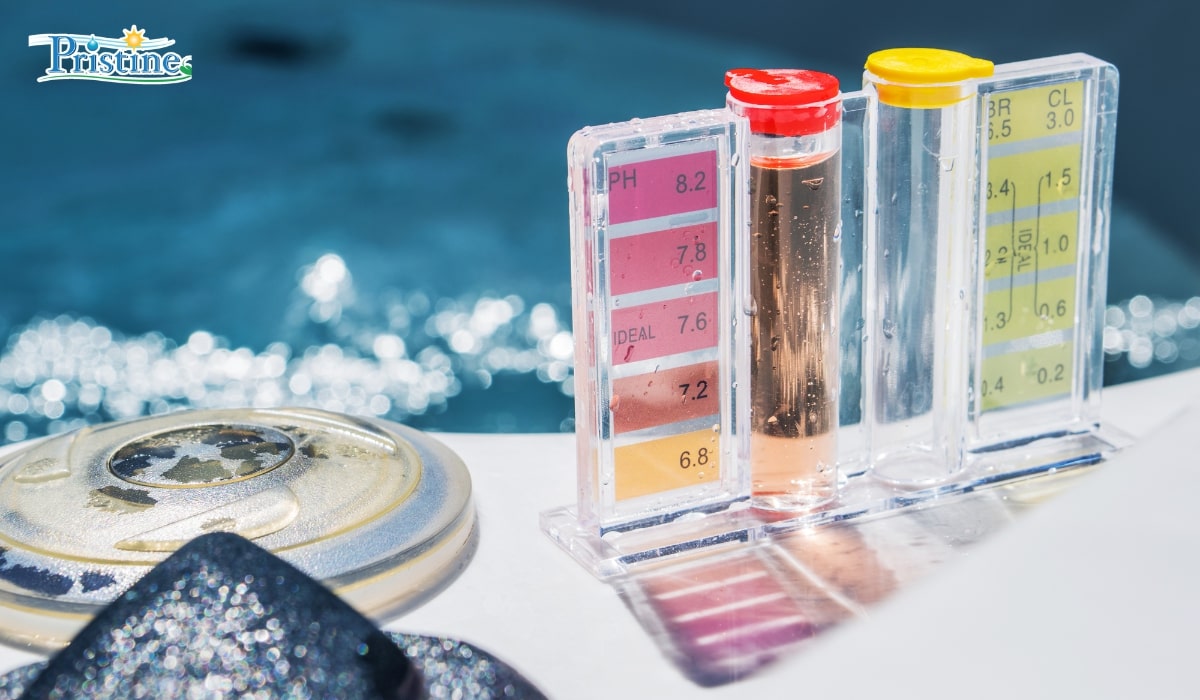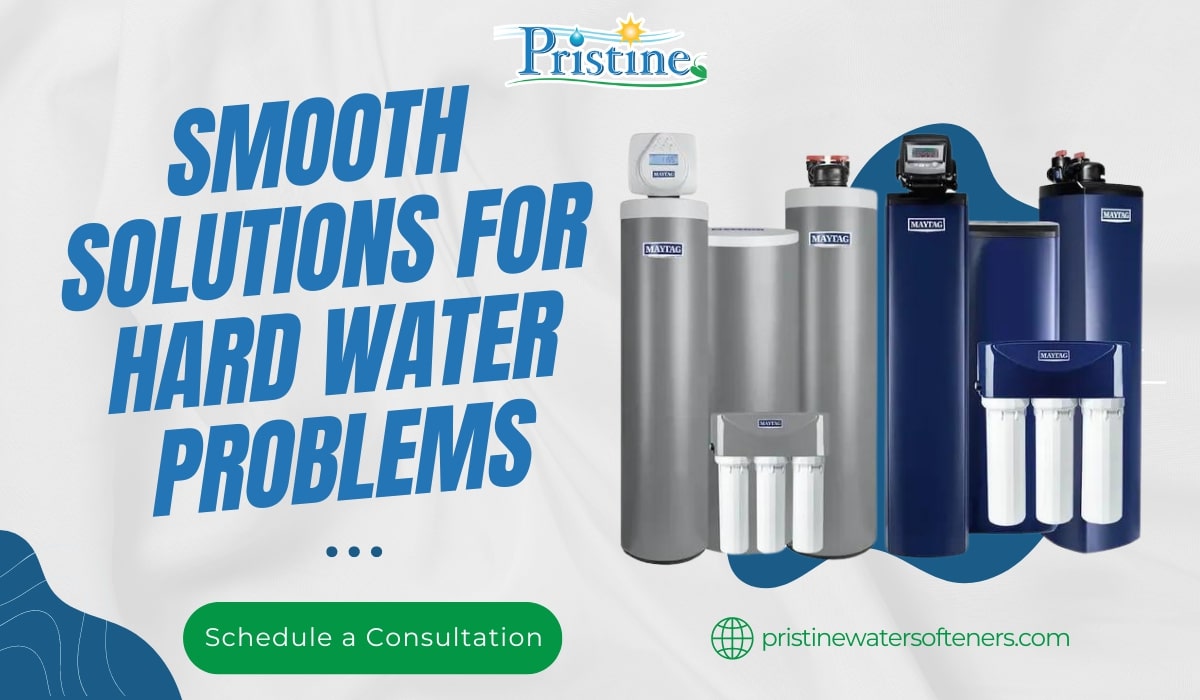Have you ever wondered why your skin feels dry after a shower or if your glassware has a cloudy film? It might be time to check your water hardness test water hardness scale. Performing a water hardness test is crucial for understanding your household water. But how often should you test the water hardness scale of your water? Let’s discuss this essential topic.
Understanding Water Hardness
What is Water Hardness?
Water hardness refers to your water’s relative dissolved calcium and magnesium concentration. The higher the relative concentration of these minerals in drinking water, the “harder” your water is. Water hardness is often measured in grains per gallon (GPG) or milligrams per liter (mg/L). Carbonate hardness, or temporary hardness, related to alkalinity, relates to the “buffering capacity” of the water (its ability to resist pH changes).
The Water Hardness Scale
The water hardness scale ranges from soft to very hard. Soft water contains 0–60 mg/L, moderately hard water has a hardness scale of 61–120 mg/L, hard water contains a hardness scale of 121–180 mg/L, and very hard water exceeds 180 mg/L. Total hardness is the sum of the calcium and magnesium concentrations, expressed as calcium carbonate, in milligrams per liter (mg/L).
Why is Water Hardness Important?
Hard water can lead to mineral buildup in pipes, reduced efficiency of water-using appliances, and soap scum on surfaces. Its hardness and hard water can also affect your skin and hair, causing dryness and irritation. Testing for water hardness is essential because hard water is typically a result of high concentrations of dissolved minerals, mainly calcium and magnesium, in your water supply.
How To Perform A Water Hardness Test
Types Of Water Hardness Tests
There are several methods to get a test water hardness test kit for water hardness measurement:
- Test Strips: Simple and easy to use, these strips change color based on the hardness level.
- Titration Kits: More accurate; these kits involve adding a reagent to a water sample until a color change indicates the hardness level.
- Electronic Testers: These devices provide a digital reading of the water hardness.
Steps To Conduct A Water Hardness Test
- Collect a Water Sample: Use a clean container to collect tap water.
- Follow Test Instructions: Depending on the test type, follow the specific steps provided in the kit.
- Record Results: Note the hardness level as indicated by the test.
Interpreting Water Hardness Test Results
Understanding your water hardness test results helps you decide on treatment options. If your test indicates you consider your water soft, hard, or very hard, you may need a water softener to reduce mineral content.
How Often Should You Test Your Water?
Initial Testing
Conduct an initial water hardness test to measure water hardness and establish a baseline when moving into a new home or installing a new water system.
Regular Testing
Testing frequency can vary based on several factors:
- Annual Testing: For most households, a yearly test is sufficient.
- Changes in Water Quality: If you notice changes in water quality, such as soap scum, spotty dishes, or dry skin, test your water immediately.
- New Appliances: When installing new water-using appliances, test your water to ensure they operate efficiently.
Seasonal Variations
Water and hardness levels can fluctuate seasonally due to changes in water supply and usage. Consider testing during different seasons to monitor these changes.
Factors Affecting Water Hardness
Geographical Location
Your location significantly impacts general water hardness levels. Areas with limestone geology tend to have harder water due to higher calcium and magnesium levels.
Water Source
The source of your water, whether it’s city water, well water, or another natural source, influences water hardness levels. Well, water often has higher hardness levels than city water users.
Household Water Usage
Higher household water usage can concentrate dissolved minerals, increasing water hardness. Regular testing of water hardness helps monitor these changes.
Signs You Need To Test Your Water
Visible Buildup
Limescale buildup on faucets, showerheads, plumbing fixtures, and appliances indicates hard water. This mineral buildup can decrease the efficiency of water heaters and other appliances.
Skin And Hair Issues
Dry skin and dry hair can be hard water problems or be caused by hard water. If you notice these issues, performing a water hardness test might be time.
Soap Scum And Spotty Dishes
Soap scum in sinks, bathtubs, and glassware indicates hard water. Testing can confirm this and help you take corrective measures.
Benefits Of Regular Water Hardness Testing
Protecting Appliances
Regular testing helps protect water-using appliances from mineral buildup, extending their lifespan and improving efficiency.
Improving Skin And Hair Health
Soft water can improve skin and hair health, reducing dryness and irritation. Regular testing ensures you maintain optimal tap water quality.
Enhancing Cleaning Efficiency
Soft water improves the efficiency of cleaning products, reducing soap scum and making cleaning tasks more manageable.
Water Softening Solutions
Water Softeners
Water softeners are the most common solution for hard water. These water softener systems replace hardness minerals with sodium or potassium ions, reducing water hardness.
Salt-Free Conditioners
Salt-free conditioners use a different process to prevent mineral buildup without adding sodium to your water. They are an alternative for those concerned about sodium intake.
Reverse Osmosis Systems
Reverse osmosis systems can remove dissolved minerals, providing soft water. For optimal results, these systems are often used in conjunction with water softeners.
Water Hardness And Health Risks
While hard water is generally not considered harmful to human health, certain health risks and concerns are associated with it. Here’s a detailed look into how hard water can impact your health:
Mineral Intake
Hard water contains higher levels of minerals like calcium and magnesium. These minerals are essential for our health in moderate amounts. Drinking hard water can contribute to your daily intake of these nutrients. However, excessive consumption of these minerals through drinking water alone is uncommon and typically not a significant concern.
Skin And Hair Problems
Hard water can lead to skin and hair issues. The high mineral content can cause soap to react, forming soap scum that doesn’t rinse off quickly. This residue can clog pores, leading to dry skin, irritation, and worsening conditions like eczema and acne. For hair, hard water can make it feel dry and brittle, making it difficult to manage and potentially causing dandruff.
Digestive Issues
In rare cases, individuals with sensitive digestive systems might experience mild digestive discomfort from drinking hard water. This is more common in people not accustomed to high mineral content in their water and is generally not a severe health risk.
Kidney Stones
Some evidence suggests that high calcium levels in hard water could contribute to the formation of kidney stones in susceptible individuals. However, this risk is typically associated with other dietary factors and not solely with water hardness.
Taste and Aesthetic Concerns
Hard water can affect the taste of drinking water and its beverages, such as coffee and tea. While this is not a health issue or risk, it can impact overall satisfaction and lead to a preference for alternative water sources.
Home Testing Kits vs. Professional Testing
Home Testing Kits
Home testing kits are convenient and cost-effective for regular monitoring. They provide quick results and are easy to use. Water testing kits will measure your water hardness and test your water for 14 other contaminants, including lead, arsenic, and total dissolved solids (TDS).
Professional Testing
Consider professional testing for more accurate results, especially if you suspect very hard water. Water treatment professionals can provide detailed analysis and tailored solutions.
Regularly performing a water hardness test is essential for maintaining your home’s water quality. Whether you use a home testing kit or seek professional help, understanding your water hardness can protect your appliances, improve your skin and hair health, and enhance cleaning efficiency.
By testing your water supply annually or whenever you notice changes, you can ensure a high-quality water supply for your household. Get a test today! Buy a water test kit.
1. How Can I Tell If My Water Is Hard Without A Test?
Look for signs like limescale buildup, dry skin and hair, and soap scum on surfaces. These troubling signs are common indicators of hard water. You can choose the best water softener that suits your requirements based on where your home water supply falls on the hardness scale, your family’s softness preference, and how much water they use.
2. Can Hard Water Affect My Health?
Hard water is not typically harmful to health but can cause skin irritation and dryness. It may also impact the taste of your drinking water.
3. How Do I Choose the Right Water Softener?
Consider factors like your water’s mineral content and hardness level, household size, and budget. Consulting with a water treatment professional can help you make the best choice.
4. Are There Any Natural Ways to Soften Water?
Boiling water can reduce temporary water hardness scale well, but for hard water problems, permanent solutions, such as water softeners or conditioners, are more effective.
Transform Your Home’s Water Quality Today!
Ensure the best water quality for your home with Pristine Water Softeners. Don’t let hard water ruin your appliances or irritate your skin any longer. Invest in a professional water-softening solution that guarantees cleaner, softer water for your household. Visit Pristine Water Softeners today to explore our range of water-softening systems and schedule your free consultation. Experience the difference in water quality and improve your daily living with Pristine Water Softeners!



